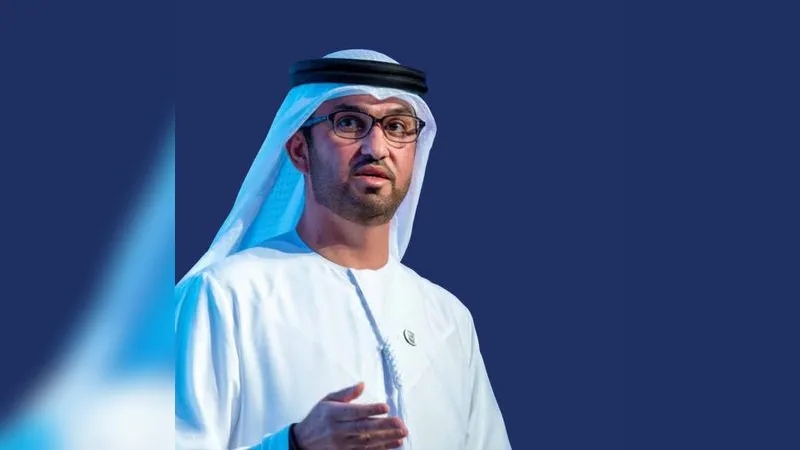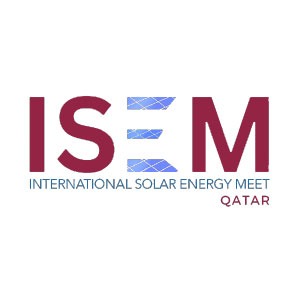- ASRY Awarded 2024 RoSPA Gold Medal in Health and Safety
- BP ponders shifting focus away from renewables, say sources
- QatarEnergy enters 10-year naphtha supply agreement with Japan’s ENEOS Corporation
- The International Energy Agency expects oil demand growth to slow in 2024
- The International Monetary Fund re-selects Kristalina Georgieva as its director
- Libya to target producing 1.4 million b/d by end 2024
- TotalEnergies launches the Marsa LNG project and deploys it multi-energy strategy in Oman
- H.E. Minister Al-Kaabi: Demand for oil and gas will continue for long; we have to be responsible, and Qatar is doing its part
- Egypt to stop exporting LNG starting from the beginning of May 2024
- QatarEnergy selects Nakilat to own and operate 25 conventional LNG vessels

UAE: Sultan Al Jaber, President of ADNOC: Our ultimate goal is to reduce emissions, not reduce growth and progress.

Dr. Sultan bin Ahmed Al Jaber, Minister of Industry and Advanced Technology and Special Envoy of the UAE for Climate Change, confirmed that the UAE is continuing its renewable energy projects. He added that the contribution of renewable energy amounted to more than 80% of the total new production capacity of electricity during the past year, which is a clear indication that the transformation in the energy sector is proceeding with rapid steps, in a frame that provides progress in both economic growth and climate action.
Although wind and solar energy constituted the majority of the total new capacity to generate electricity in the world in 2021, it still constitutes only 4% of the current energy mix in the world, and with the demand for energy growing more than ever, ensuring its security requires continued the role of oil and gas as an important and essential component of the energy system for decades to come.
He added that with the start of the economic recovery from the Covid-19 pandemic, the world faced a deep crisis in energy supplies, which intensified due to the Russian-Ukrainian conflict, which prompted various countries around the world to reassess their strategic energy needs, and it became premature for governments to adopt policies that lead to the withdrawal of Investments from the oil and gas sector before securing suitable and viable alternatives.
He explained that generating electricity from wind and solar energy is making great progress, but the majority of energy consumption is in heavy industries, manufacturing, construction, transportation and agriculture, which are sectors in which it is difficult to reduce emissions, and have a significant impact on the climate, which means that more investment must be directed to them.
He pointed out that last year the value of global investments in renewable energy sources exceeded $365 billion, while the total investment in energy storage technology, carbon capture and the hydrogen sector value chain was only $12 billion, which is of course not sufficient to support the transformation process in the energy sector, as the total investment required is estimated at more than 250 trillion dollars over the next 30 years, and it is clear that no country or company can secure this amount of funding alone, in addition to the fact that the process of transformation in the energy sector is not instantaneous, but it takes time.
He pointed out that the focus should be on making more efforts to reduce the impact of oil and gas on the climate, and this requires intensifying cooperation, coordination and working closely between producers, governments, and the private sector in order to make the new production of energy less intensive in emissions than the previous one, and this means the need to formulate supportive fiscal policies that include tax incentives, raising operational efficiency by enhancing the use of technology, commitment to reduce methane emissions and gas flaring, and providing additional investments in carbon capture technologies. He stressed that this is, in short, the approach taken by the UAE to transform the energy sector, which ensures that it continues to meet the current needs of the world, while investing in future energy systems.
He said that the UAE owns three of the largest solar power plants in the world in one location, and invested in renewable energy projects in more than 40 developed and developing countries, and plans to expand its portfolio of renewable energy projects to reach 100 Giga-watts of production capacity by 2030. Although the UAE continues its role as a reliable supplier of the least types of oil and gas in the world in terms of emissions intensity, it is also working to reduce emissions by an additional 25% before the end of 2030.
The UAE is the first country in the Middle East and North Africa region to announce a strategic initiative in pursuit of climate neutrality by 2050, and it continues to work to reduce emissions in all economic activities in the country, and established the first program in the region to capture, use and store carbon on an industrial scale. The Abu Dhabi National Oil Company “ADNOC” is working to secure the electricity needs of its operations from peaceful nuclear and solar sources that are free of emissions.










